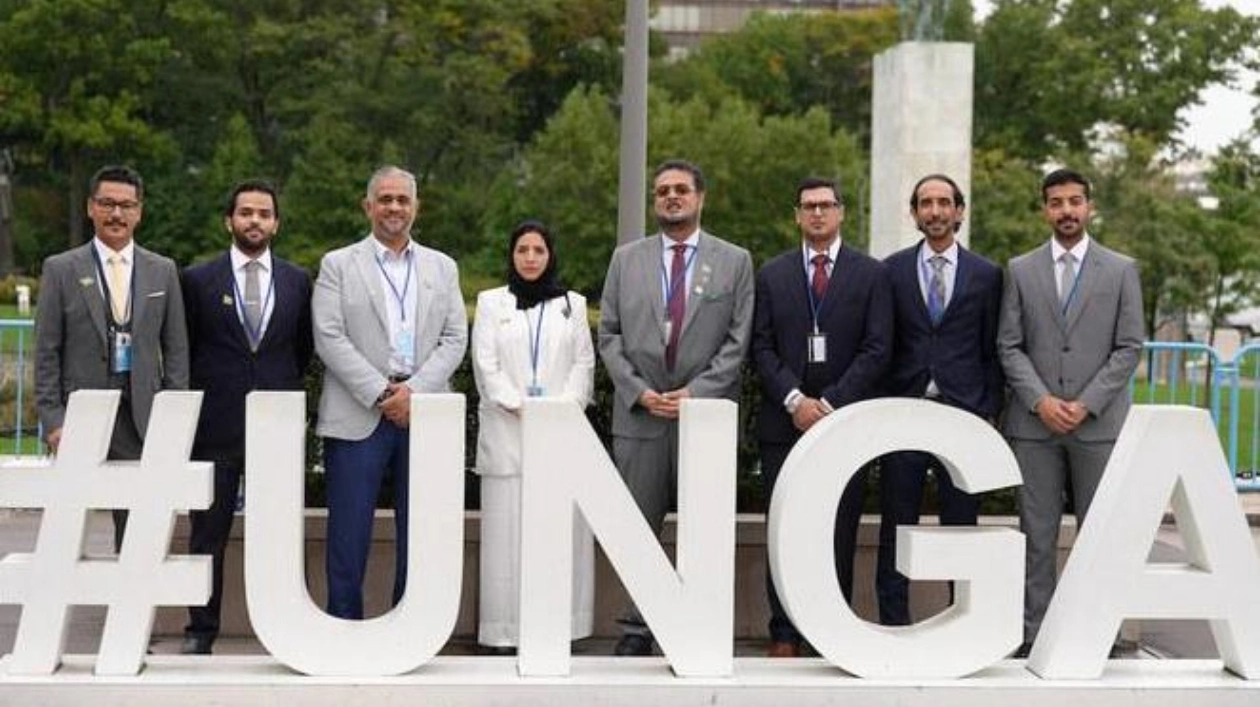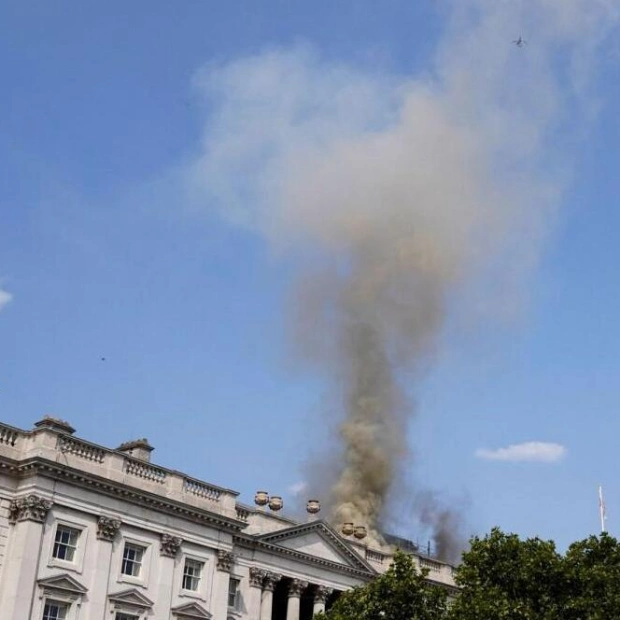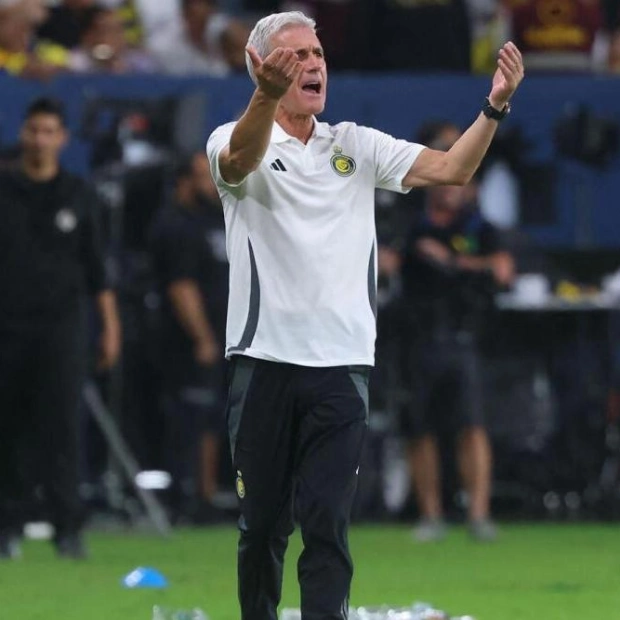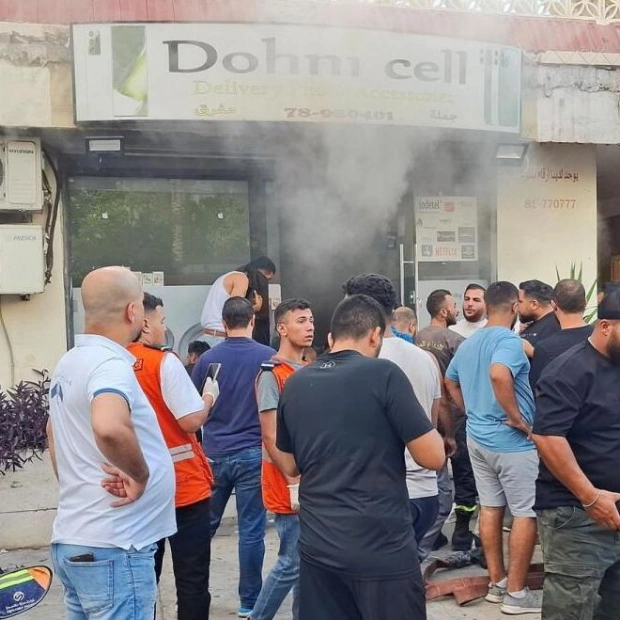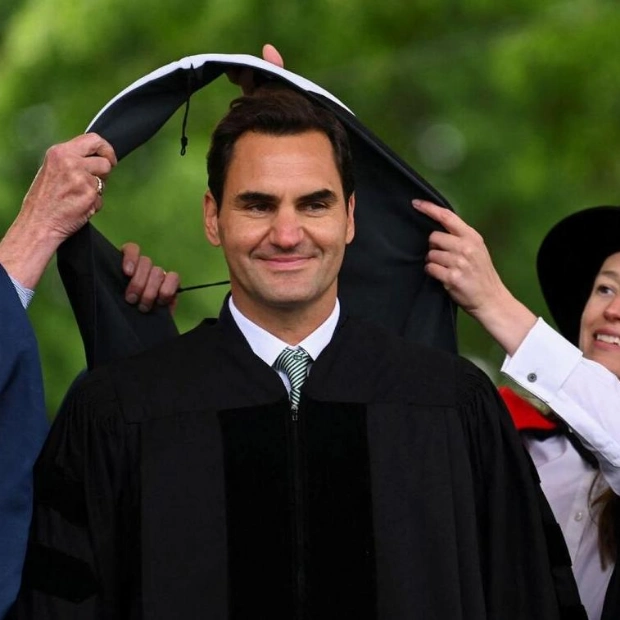RIYADH: The 79th UN General Assembly saw global discussions on environmental challenges take center stage, with Saudi Arabia’s Ministry of Environment, Water, and Agriculture leading the charge.
In the lead-up to the UNCCD COP16, the Kingdom’s incoming COP16 Presidency launched a series of events to highlight these critical issues, with a primary focus on achieving the UNCCD goal of restoring 1.5 billion hectares of land by 2030.
Osama Faqeeha, Saudi Deputy Minister of Environment, Water, and Agriculture and advisor to the incoming COP16 President, stressed the urgency of this mission in an interview with Arab News: “Our primary focus in New York has been to raise international awareness about the urgent need to address land degradation, drought, and desertification.”
Saudi Arabia’s efforts at the UNGA extended beyond awareness-raising. The Kingdom hosted and participated in a range of events aimed at finding sustainable solutions.
A pivotal event, “Road to Riyadh,” brought together key stakeholders from environmental policy, government, science, and NGOs, setting the stage for ongoing discussions leading up to COP16.
Faqeeha noted: “At the UN General Assembly, we hosted and participated in events designed to find lasting solutions to land degradation, desertification, and drought.”
He added: “We will continue to consult and engage with experts, decision-makers, and environmental stakeholders in the lead-up to COP16 in Riyadh, aiming to raise awareness about policy initiatives and funding mechanisms for land restoration.”
A significant outcome of Saudi Arabia’s UNGA participation was the launch of the “Rio Trio” initiative, a critical dialogue among the UNCCD, UNFCCC, and CBD.
The Rio Trio event, held on the sidelines of the UNGA, brought together decision-makers from Azerbaijan, Colombia, and Saudi Arabia, aiming to find unified solutions to interconnected environmental challenges.
Faqeeha described the end of 2024 as a crucial period for the planet, with all three COPs taking place within a short timeframe.
Saudi Arabia’s commitment to multilateral cooperation extends beyond the UNGA. The Kingdom has also played a leading role in the G20 Global Land Initiative, launched at the 2020 G20 summit in Riyadh.
Faqeeha highlighted the significance of this initiative, stating: “It was at the G20 in Riyadh in 2020 that the group launched the Global Land Initiative, pledging to halve degraded land by 2040.”
As the Kingdom prepares for COP16, it is rallying the international community to enhance commitments on land restoration and prevention of degradation.
The COP16 conference, set to take place in Riyadh, is expected to attract up to 20,000 participants, making it the largest UNCCD COP to date.
Faqeeha said: “We are expecting to attract up to 20,000 people, making COP16 the largest UNCCD COP to date.”
The conference will feature the first-ever Green Zone, a space for collaboration between public and private sectors, NGOs, the scientific community, and financial institutions.
Faqeeha added: “We are doing this to amplify the voices of the 3.2 billion people impacted by land degradation, drought, and desertification around the world.”
Saudi Arabia’s leadership at COP16 is grounded in international cooperation and domestic environmental stewardship.
Vision 2030, which emphasizes economic diversification and environmental sustainability, drives the Kingdom’s ambitious land restoration goals.
Faqeeha highlighted that sustainability is deeply embedded in Saudi Arabia’s development roadmap.
He explained that economic benefits of land restoration are substantial, potentially generating $1.4 trillion annually through increased crop production from restored land.
However, the cost of inaction is even higher, with UN estimates suggesting that 90 percent of Earth’s soil could be at risk of degradation by 2050.
Saudi Arabia’s leadership extends beyond its borders, committing to restoring 200 million hectares of degraded land domestically and internationally.
Faqeeha stressed the importance of balancing economic growth with environmental protection, particularly as a G20 nation.
In fostering global collaboration at COP16, Saudi Arabia encourages other countries to adopt sustainable land management practices and contribute to the UNCCD’s goals.
Faqeeha emphasized that land restoration is not just an environmental necessity but an economic opportunity.
To achieve this, Saudi Arabia is working to unlock funding mechanisms, including those available via multilateral development banks.
Businesses will play a critical role in addressing land degradation, and the Kingdom is committed to encouraging the private sector to take more active steps.
Faqeeha observed that businesses often prioritize short-term profits over long-term consequences.
He stressed that COP16 will focus on shifting this mindset, encouraging businesses to recognize the long-term value of sustainable practices.
In addition to engaging the private sector, Saudi Arabia is committed to involving the youth in the global land restoration movement.
Faqeeha pointed out that over 1 billion young people in developing countries depend on land and natural resources for their livelihoods.
He stated: “Global efforts on land restoration can succeed only if we involve the youth.”
At COP16, the Kingdom will provide a platform for young people to participate in discussions and advocate for sustainable land management practices.
Gender equality is another key focus of COP16. Saudi Arabia will host a Gender Forum in the Green Zone to ensure women’s leadership and participation in land restoration efforts are prioritized.
Faqeeha emphasized that gender equality is critical for the global effort to prevent, reduce, and reverse land degradation.
As Saudi Arabia looks ahead to COP16, it remains steadfast in its mission to foster global collaboration, drive tangible results, and create a lasting legacy in the fight against land degradation, desertification, and drought.
Faqeeha concluded: “At the UN General Assembly, we sought to galvanize governments, businesses, NGOs, and experts to arrive in Riyadh ready to deliver the robust multilateral action our planet desperately needs.”
By leveraging the momentum built at the 79th UN General Assembly and continuing to champion multilateral solutions, the Kingdom is set to make COP16 a transformative moment for both people and the planet.
